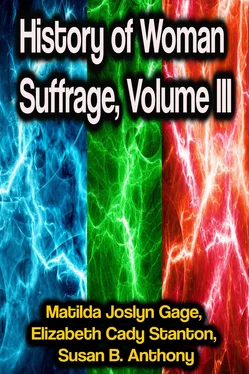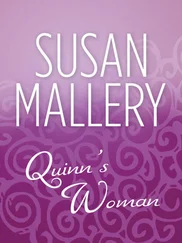We were about to commit an overt act. Gen. Hawley, president of the centennial commission and manager of the programme, had peremptorily forbidden its presentation. Yet in the face of this—in the face of the assembled nation and representatives from the crowned heads of Europe, a handful of women actuated by the same high principles as our fathers, stirred by the same desire for freedom, moved by the same impulse for liberty, were to again proclaim the right of self-government; were again to impeach the spirit of King George manifested in our rulers, and declare that taxation without representation is tyranny, that the divine right of one-half of the people to rule the other half is also despotism. As I followed the reading of Richard Henry Lee, and marked the wild enthusiasm of its reception, and remembered that at its close, a document, as noble, as divine, as grand, as historic as that, was to be presented in silence ; an act, as heroic, as worthy, as sublime, was to be performed in the face of the contemptuous amazement of the assembled world, I trembled with suppressed emotion. When Susan Anthony arose, with a look of intense pain, yet heroic determination in her face, I silently committed her to the Great Father who seëth not in part, to strengthen and comfort her heroic heart, and then she was lost to view in the sudden uprising caused by the burst of applause instituted by General Hawley in behalf of the Brazilian emperor. And thus at the close of the reading of a document which repudiated kings and declared the right of every person to life, to liberty and the pursuit of individual happiness, the American people, applauding a crowned monarch, received in silence the immortal document and protest of its discrowned queens!
Shall I recount the emotion that swayed me, as I thought of all that woman had done to build up this country; to sustain its unity, to perpetuate its principles; of its self-denying and heroic Pilgrim and revolutionary mothers; of the work of woman in the anti-slavery cause; the agony and death of her travail in its second birth for freedom; sustaining the nation by prayers, by self-sacrificing contributions, by patriotic endeavors, by encouraging words; and, reviewing the programme, and all the attendant pageants, remembered that in these grand centennial celebrations, when the nation rounded out its first century, not a tribute , not a recognition in any shape, form or manner was paid to woman; that upon the platform, as honored guests, sat those who had been false in the hour of our country's peril; that upon this historic soil, stood the now freeman, once a slave, whose liberty and life were given him at the hands of woman; that the inhabitants of the far off isles of the sea, India, Asia, Africa, Europe, were gladly welcomed as free citizens, while woman, a suppliant beggar, pleaded of one man, invested with autocratic power, for the simple boon of presenting a protest in silence, against her degradation, and was denied !
I stood yesterday on the corner of Broad and Chestnut streets, watching the march of the Grand Army of the Republic. As the torn and tattered battle flags came by, all the terrors of that war tragedy suddenly rushed over me, and I sat down and wept. Looking again, I saw the car of wounded, soldiers; as in thought I was suddenly transported to the banks of the Mississippi I felt the air full of the horrors of the battle of Shiloh, and saw two young girls waiting the landing of a steamer that had been dispatched to succor the wounded on that terrible field. They were watching for "mother"—who for the first time had left her home charge, and hushing her own heart's pleadings, heard only her country's call, and gone down to that field of carnage to tenderly care for the soldier. As they boarded the steamer; what a sight met their eyes! Maimed, bleeding, dying soldiers by the hundreds, were on cots on deck, on boxes filled with amputated limbs, and the dead were awaiting the last sad rites. Like ministering angels walked two women, their mother and the now sainted Margaret Breckenridge of Kentucky, amid these rows of sufferers, with strong nerve and steady arm, comforting the soldier boy, so far from friends and home; binding up the ghastly wound, bathing the feverish brow, smoothing the dying pillow, and with tender mother's prayer and tear, closing the eyes of the dead. The first revelation of war; how it burned our youthful brain! How it moved us to divine compassion, how it stirred us to even give up our mother to the work for years, as we heard the piteous pleading, "Don't leave us, mother"—"Oh, mother, we can never forget." But alas they did forget! This scene repeated again, and again, during that long conflict, with hundreds of women offering a like service in camp and floating hospital, leaving sweet homes, without money, price or thought of emolument, going to these battle-fields and tenderly nursing the army of the republic to life again; while back of them were tens of thousands other women of the great sanitary army, who, in self-sacrifice at home, were sending lint, bandages, clothing, delicacies of food and raiment of all kinds, by car-load and ship-load, to comfort and ameliorate the sufferings of the grand army of the republic, and yet as I watched its march in this centennial year, its gala day— not a tribute marked its gratitude to her who had proved its savior and friend, in the hour of peril.
Again, came the colored man in rank and file—and in thought I saw the fifteenth-amendment jubilee, which proclaimed his emancipation. As banner after banner passed me, with the name of Garrison, of Phillips, of Douglass, I looked in vain for the name of Harriet Beecher Stowe, whose one book, "Uncle Tom's Cabin"—did more to arouse the whole world to the horrors of slavery, than did the words or works of any ten men. I searched for a tribute to Lucretia Mott and other women of that conflict, but none appeared. And so to-day, standing here with heart and brain convulsed with all these memories and scenes, can you wonder that we are stirred to profoundest depths, as we review the base ingratitude of this nation to its women? It has taxed its women, and asked the women, in whose veins flows the blood of their Pilgrim and Revolutionary mothers, to assist by money, individual effort and presence, to make it a year of jubilee for the proclamation of a ransomed male nationality. Zenobia, in gilded chains it may be, but chains nevertheless, marches through the streets of Philadelphia to-day, an appendage of the chariot wheels which proclaim the coming of her king, her lord, her master, whether he be white or black, native or foreign-born, virtuous or vile, lettered or unlettered. As the state-house bell, with its inscription, "Proclaim liberty—throughout the land, unto all the inhabitants thereof," pealed forth its jubilant reiteration,—the daughters of Jefferson, of Hancock, of Adams, and Patrick Henry, who have been politically outlawed and ostracized by their own countrymen, here had no liberty proclaimed for them; they are not inhabitants, only sojourners in the land of their fathers, and as the slaves in meek subjection to the will of the master placed the crown of sovereignty on the alien from Europe, Asia, Africa, she is asked to sing in dulcet strains: "The king is dead—long live the king!"
And thus to-day we round out the first century of a professed republic,—with woman figuratively representing freedom—and yet all free, save woman.
For five long hours of that hot mid-summer's day, that crowded audience listened earnestly to woman's demand for equality of rights before the law. When the convention at last adjourned, the Hutchinsons singing, "A Hundred Years Hence,"[14] it was slowly and reluctantly that the great audience left the house. Judged by its immediate influence, it was a wonderful meeting. No elaborate preparations had been made, for not until late on Friday evening had it been decided upon, hoping still, as we did, for a recognition in the general celebration on Independence Square. Speakers were not prepared, hardly a moment of thought had been given as to what should be said, but words fitting for the hour came to lips rendered eloquent by the pressure of intense emotion.
Читать дальше












